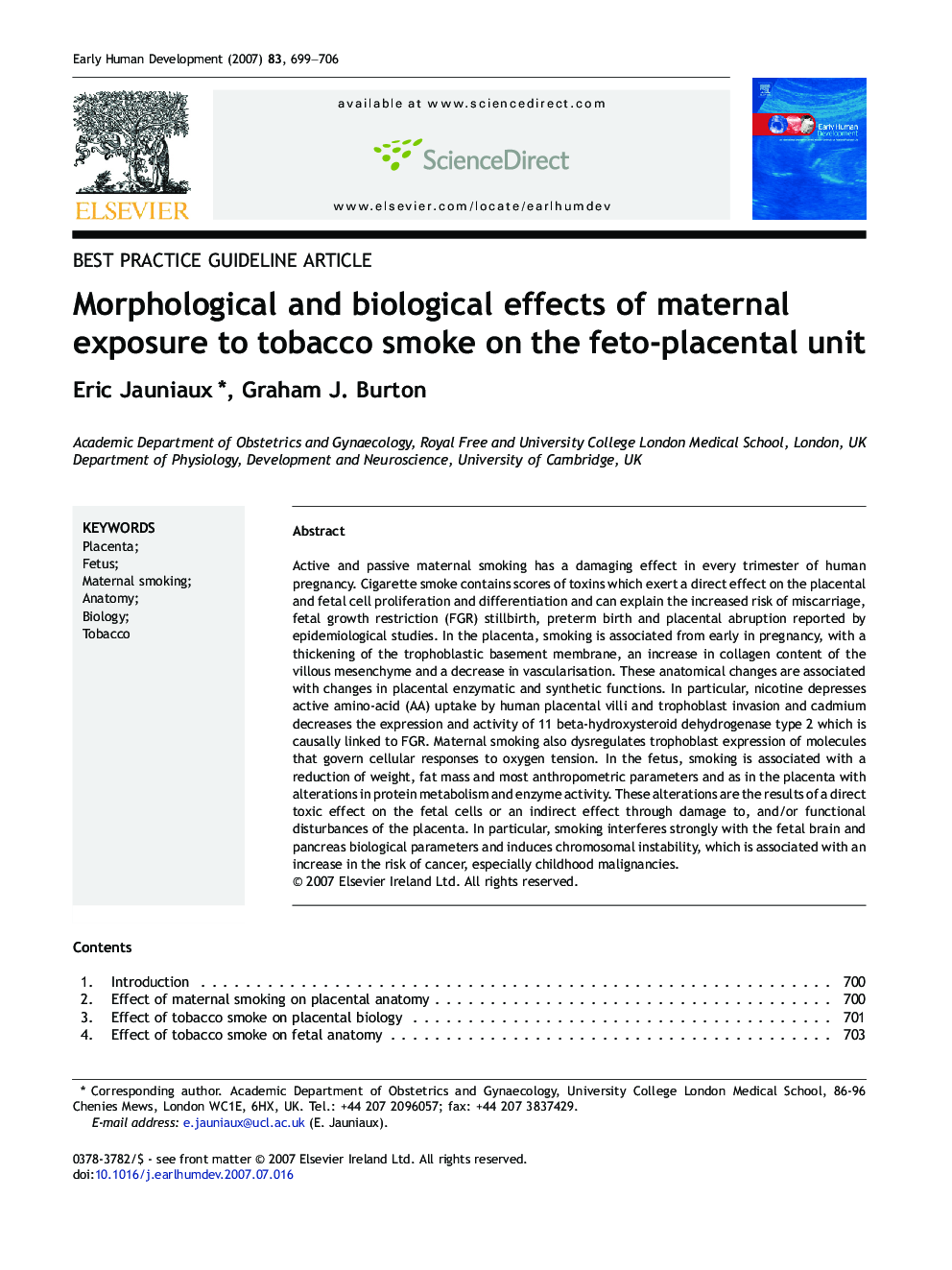| Article ID | Journal | Published Year | Pages | File Type |
|---|---|---|---|---|
| 3918020 | Early Human Development | 2007 | 8 Pages |
Active and passive maternal smoking has a damaging effect in every trimester of human pregnancy. Cigarette smoke contains scores of toxins which exert a direct effect on the placental and fetal cell proliferation and differentiation and can explain the increased risk of miscarriage, fetal growth restriction (FGR) stillbirth, preterm birth and placental abruption reported by epidemiological studies. In the placenta, smoking is associated from early in pregnancy, with a thickening of the trophoblastic basement membrane, an increase in collagen content of the villous mesenchyme and a decrease in vascularisation. These anatomical changes are associated with changes in placental enzymatic and synthetic functions. In particular, nicotine depresses active amino-acid (AA) uptake by human placental villi and trophoblast invasion and cadmium decreases the expression and activity of 11 beta-hydroxysteroid dehydrogenase type 2 which is causally linked to FGR. Maternal smoking also dysregulates trophoblast expression of molecules that govern cellular responses to oxygen tension. In the fetus, smoking is associated with a reduction of weight, fat mass and most anthropometric parameters and as in the placenta with alterations in protein metabolism and enzyme activity. These alterations are the results of a direct toxic effect on the fetal cells or an indirect effect through damage to, and/or functional disturbances of the placenta. In particular, smoking interferes strongly with the fetal brain and pancreas biological parameters and induces chromosomal instability, which is associated with an increase in the risk of cancer, especially childhood malignancies.
